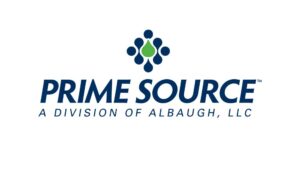The effective use of water
The role of the golf course superintendent is broad and constantly evolving. Of the many hats a superintendent wears, the role of water manager has always been one of the most important. Effective water management is a necessary component of effective course management. Superintendents have a responsibility to act as stewards of their courses, the land, and the environments surrounding them.
To make effective use of a golf course irrigation system requires a great deal of training and familiarity with local weather, landforms, and the type of irrigation equipment being used. Good water management comes down to understanding the basics of landscape irrigation, including water source and quality, environmental conditions, equipment, maintenance, and record keeping. Failure to excel in any of the basics can diminish a water manager’s effectiveness and waste water. Considering the value of the resource, water, superintendents have a central responsibility to use it wisely and conserve when possible. Here’s what I think it takes to be an effective water manager and steward.
Know your resources and how to use them effectively
There are a few things to know about before you can make decisions about watering a golf course. You have to answer a few questions before you can get started. Where is my water coming from? Is it reliable in the sense there is ample availability or are there restrictions on volume of use? What is the quality of the water? How do we deliver the water? Is the pumping station up to par with expectations? Is it from a well or reservoir? Is it potable or not? I want to know everything there is to know about my water.
All golf courses are different and they all have their unique challenges. As good water managers we have to figure out the problem areas on our courses. Good golf course irrigation requires a diverse, well-trained staff, but the size of that staff can vary depending on the type of facility. One course may have a single person responsible for irrigating a course and another may have several. Regardless of staff size, there are fundamentals of irrigation that should be strictly adhered to.
 Take care of the pumping station
• The efficiency of the pumping station should be evaluated annually, preferably in the off-season before regular irrigation begins.
• Donuts or rings around sprinkler heads are good indications of poor performance.
 Perform regular head checks
• Nozzle performance is critical to the effectiveness a system. Sprinkler spray patterns should be evaluated annually and if nozzles are showing signs of poor distribution uniformity, they should be replaced.
 Maintain & protect critical hardware
• Keep your satellites clean and free of insects and animals. Damage from these critters is expensive and can take down a satellite
• Back up the files on your irrigation central controller regularly and store them in a safe place. Crazy things can happen to your computer. If something like fire or robbery occurs you can quickly load files on a new computer rather than having to program a new computer.
 Raise & level sprinkler heads
• A low or un-level sprinkler head can destroy the efficiency of your irrigation system by creating wet and dry areas around sprinkler heads.
 Use your hose
• Not all courses have the staff to do a lot of spot watering, but this is the best way to target tough to irrigate areas.
 Keep track of your consumption
• Establish historical data and set goals for conservation.
 Know your water
• Establish baseline data for pH, SAR, nitrates, ECw, and/or TDS.
Sample water monthly.
 Track your weather
• Weather can be an un-exact science, but do your best to understand local trends and seasonality’s.
The fundamentals I refer to affect the efficiency of how we use and deliver water. Irrigation maintenance makes me think about a saying an old professor of mine had, “Where you look, you find.” If we are not regularly looking for weak areas of our systems we are not likely to find them. We should be constantly evaluating our systems and working to improve them.
We serve many functions managing the complex operations of our courses and for years, superintendents have been innovators in the precision use of water in irrigating golf courses. It is as imperative as ever for us to continue to set the example for sound water management practices in our communities. Efficient use of water is vital to our success and the sustainability of the game of golf.




















